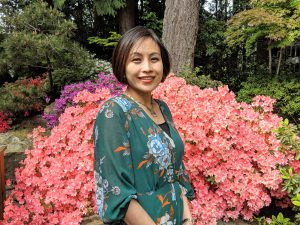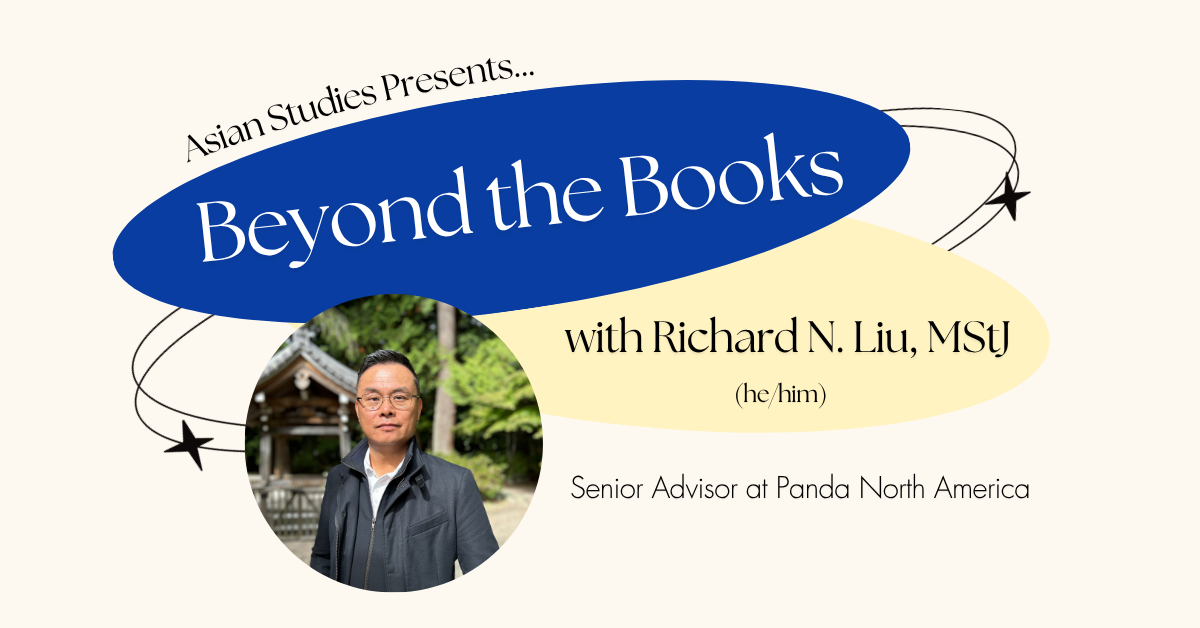Interested in pursuing an PhD in Asian Studies? In this interview series, we ask our graduate students about their research, their experience in our program and their future academic and professional goals. This interview features PhD student Parboti Roy. Parboti’s research focuses on Indigenous women’s resistance to gender-based violence in Bangladesh.


Tell us a little about yourself, your background and what inspired your early interest in Asian Studies?
I come from an Indigenous community called ‘Chakma’ from the Chittagong Hill Tracts, Bangladesh. After completion of my Bachelors degree and two Masters in Women and Gender Studies, and as I started shifting my career from social development to teaching, I decided to pursue a PhD. Furthermore, it is my mother’s, my aunties’, my grandmother’s as well as my own dream to become one of the very few Chakma women scholars by earning a PhD degree..
My work experience in women and gender issues has always inspired me to work for human rights, particularly for women in marginalized communities. While I used to look for scholarly papers on gendered violence against Indigenous women in Asia, I could not find any significant literature. This made me think about the lack of Indigenous academic scholars on this concern in Asia and inspired to apply to Asian Studies at UBC, which is one of the leading programs in the world.
Finally, I changed my academic track from Women and Gender Studies to Asian Studies as it is such a unique program that I wanted to participate in. The UBC Asian Studies program is enriched with highly specialized faculty members along with their profound research on Asia; particularly socio-cultural and historical concerns, and intersectional issues like gender, race and social justice in Asia. This also attracted me to apply to this program.
Could you explain to a non-expert what you are researching and why it is significant?
My research concentrates on Indigenous women’s’ resistance to gender-based violence in Bangladesh. Indigenous women encounter more gendered and sexual violence compared to non-Indigenous women in Bangladesh and there has been no research on this concern. My study aims to explore how Indigenous women develop mechanisms to counter such violence at different structures of the state that violate Indigenous women’s human rights. The study is very significant to understanding the intricate power relationship between the patriarchal state, colonialism, gender, class and Indigeneity and to understand Indigenous women’s self-determination rights over their identities and bodies in the context of Asia, which has so far been an unexplored area in the domain of research.
What are your career and academic goals? And how is our program helping you achieve them?
I want to build my teaching career and pursue research on gender rights and Indigenous and minority peoples’ rights, and the PhD program in Asian Studies is certainly helping me to reach these goals. Asian Studies offers courses and provides opportunities for graduate students to listen to and meet with renowned scholars. Also, there are opportunities for graduate students to hone their instructional and research skills through Teaching Assistant-ship, Research Assistant-ship and different diploma courses on instructional skill development.
As a graduate student, what have been your main activities and responsibilities?
I have recently completed the first year of my coursework program and soon to start the second year. Currently, I am taking the required courses to complete my coursework on time and working as a Teaching Assistant in the department. Apart from that, I read books and work on my papers for publication in journals.
Has there been an aspect of your graduate experience that was unexpected?
As a new international student in Canada, I faced some challenges in the beginning. However, the Department of Asian Studies supported me a lot and I am grateful to them for their cordiality. Apart from that, being a non-native English speaker whose third language is English, I was less confident about myself in a new academic environment. My teachers have encouraged me to rebuild my self-confidence.
What has been your most impactful experience as a graduate student?
The most impactful experience at UBC so far for me is to be able to take the courses that are related to my research topic during my coursework period. These courses are essential for enhancing my critical thinking and research skills. And I always try to avail the opportunities offered by the university for the development of my research skills.
Can you give any advice to new students in our program or for students considering applying to it?
My advice for the prospective students is to not think twice while applying to this department. This is a great opportunity to be a part of a dynamic department that is filled with excellent faculty and students and of course very beautiful and peaceful natural surroundings.
For the new students, I would tell them to not hesitate to seek help and advice from the department. Furthermore, there are a lot of extracurricular activities for students to explore on-and-off campus. Finally, take a deep breath to re-energize yourself for the new voyage as a graduate student!


